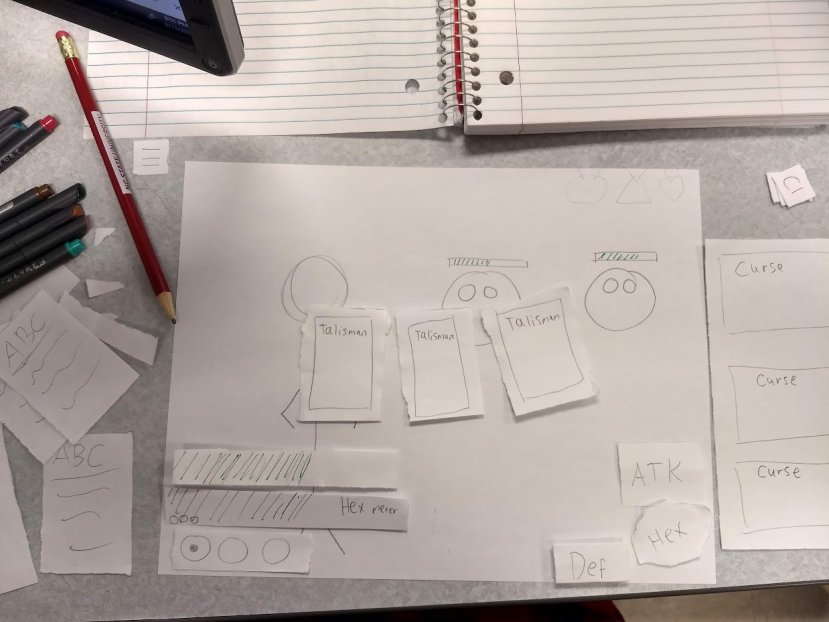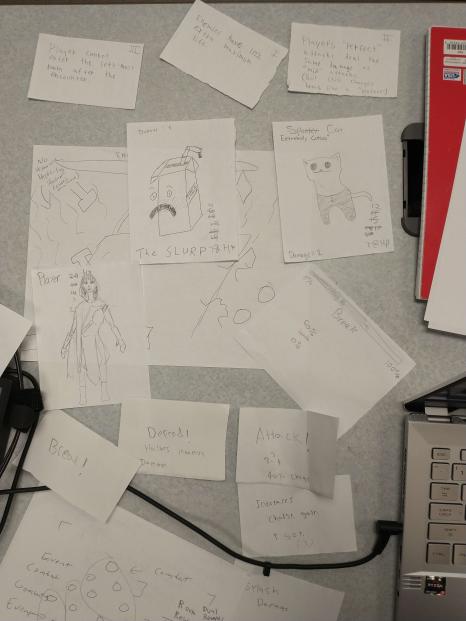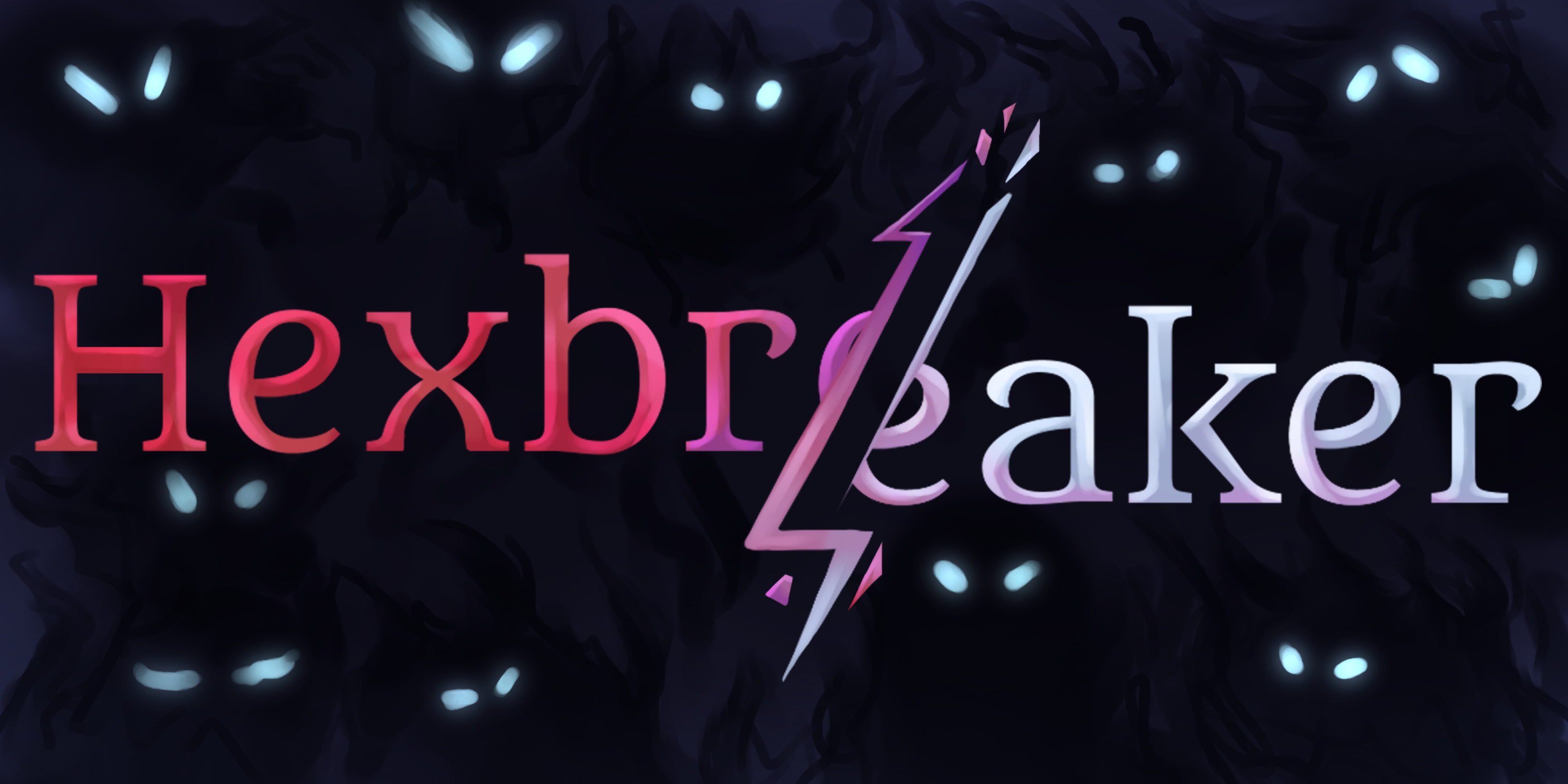Hexbreaker: Pen & Paper Prototyping
Hello everyone, it's Dan writing once more. Today I wanted to talk about our process of designing Hexbreaker's combat loop, and how creating a pen & paper prototype was key in designing the game.

Hexbreaker's Prototype
It is often said that blocking out a level you're designing is a must for exploring the fun of it before any assets are in place. This is great! It's indeed a very good idea. But what if your game isn't the type of game where "blocking out" or even sketching a "level" really... fits? Sometimes, a pen and paper prototype can help.
For our game, I decided to do something a little different very early on in development: a pen & paper prototype. When we decided what kind of game we wanted to make, we wanted to test out different ideas but did not have much development time at this stage. I took out a pencil and some paper and began sketching out what we needed to play the game as if it was a tabletop game. By doing so, we were able to test design ideas until we arrived at the mechanic that became the namesake of our game: Hexbreak. What would it feel like battling more than one enemy at a time? Should the player be able to heal during combat? How much HP should the enemies have? All of these questions and more were answered during our playtesting. This process also allowed us to feel out the layout of our game's UI until we were satisfied with it.

As you can see above, our first version of the slurp enemy was a ghostly carton. Our earliest version of curses and talismans were created during the pen & paper playtest.
Should You Create A Pen & Paper Prototype?
Creating a prototype like this might not be suited for every game genre. That said, I would encourage you to consider the idea if you're designing a puzzle game, or a deckbuilding game, or even a strategy game. Doing so will help you identify glaring design flaws and will make you and your team start thinking about the finer details of the game that need to be figured out before the core fun factor of the game can be found.
More than anything, this process really illustrates the idea that you don't need expensive software to start creating fun games or flexing your game design muscles. If the game is fun as a simple paper game, it'll be sure to grow even more fun with all the polish that comes with proper development time.
Get Hexbreaker
Hexbreaker
Death is not the end in this realm, merely a setback in your efforts.
| Status | Released |
| Authors | cfringerwtcc, dmgrummerwtcc, Arissa Guard, ddsanchezWT, Jacksonmgb |
| Genre | Action |
| Tags | 3D, paranormal, Roguelite, Singleplayer, Turn-Based Combat |
More posts
- Hexbreaker: Skyboxes for UnityJul 18, 2023
- Hexbreaker: Feature UpdatesJul 11, 2023
- Hexbreaker: Expanding Character with ParticlesJul 04, 2023
- Hexbreaker: Button Sprite SwapsJul 03, 2023
- Hexbreaker: Character DesignJun 27, 2023
- Hexbreaker: Randomization and ReplayabilityJun 20, 2023
- Hexbreaker: How to create foliage!Jun 12, 2023
- Quick-Time Events: Why and How ToJun 05, 2023
- Hexbreaker: The First DevlogMay 30, 2023

Leave a comment
Log in with itch.io to leave a comment.